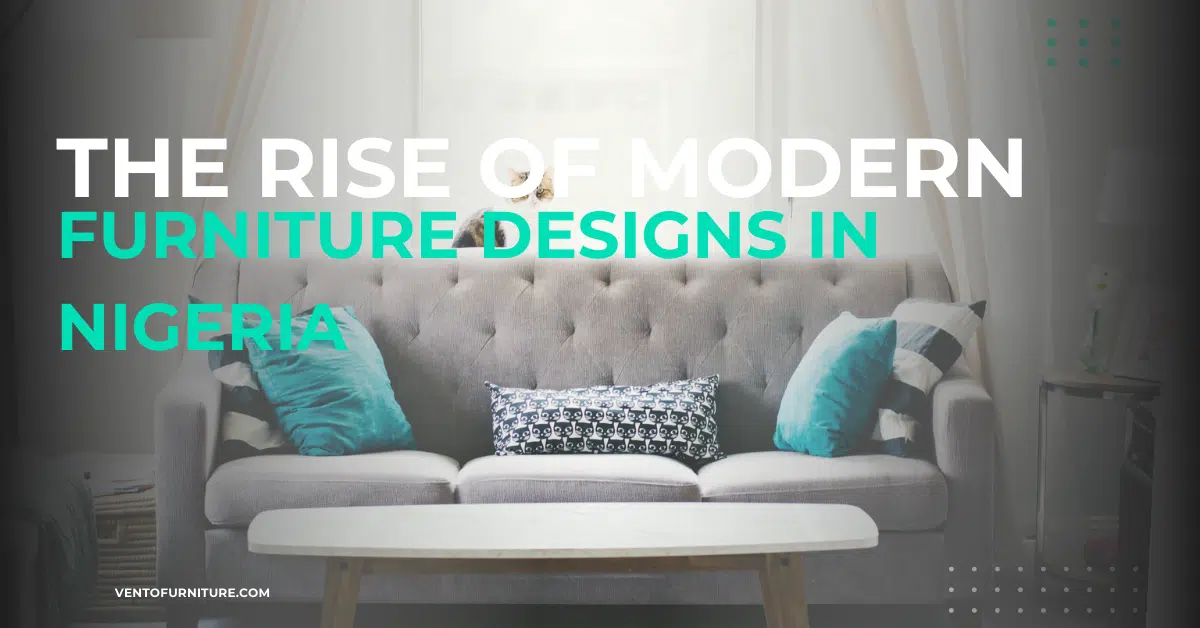Modern furniture designs have been on the rise in Nigeria in recent years. As Nigeria’s economy grows and urbanization continues, the demand for modern furniture designs has increased significantly. This article explores the emergence of modern furniture designs in Nigeria, their characteristics, popular designs, factors contributing to their rise, and the challenges faced by modern Nigerian furniture designers.
Historical Context
Nigeria has a rich history of traditional furniture designs that are deeply rooted in its diverse culture. These traditional designs are often made from locally sourced materials such as wood, cane, and bamboo, and feature intricate carvings and colorful decorations. However, in recent years, Nigeria has seen a shift towards modern furniture designs.
The influence of foreign furniture designs, particularly from Europe and North America, has played a significant role in the emergence of modern furniture designs in Nigeria. The popularity of these designs has been driven by the growing middle class in Nigeria, who are increasingly seeking modern and sophisticated furniture to match their lifestyle.
Characteristics of Modern Nigerian Furniture Designs
Modern Nigerian furniture designs are known for their unconventional materials, clean lines, and minimalist designs. They often integrate Nigerian cultural elements and are versatile and practical.
Many modern Nigerian furniture designers use unconventional materials such as metal, glass, and plastics to create their designs. This allows for more innovative and experimental designs that break away from traditional furniture design. Additionally, modern Nigerian furniture designs are characterized by clean lines and minimalist designs that focus on functionality and simplicity.
Popular Modern Nigerian Furniture Designs
Modern Nigerian furniture designs are available in a range of styles and designs. Some of the most popular designs include sofas and lounge chairs, tables and chairs, and storage and shelving units.
Sofas and lounge chairs are popular designs in modern Nigerian furniture. They are often designed with comfort and style in mind, with materials such as leather, velvet, and silk being used to create luxurious designs.
Tables and chairs are also popular modern Nigerian furniture designs. They are often made from unconventional materials such as metal and glass and feature simple, minimalist designs that are practical and versatile.
Storage and shelving units are another popular modern Nigerian furniture design. They are designed to be practical and functional, with an emphasis on simplicity and versatility.
Factors Contributing to the Rise of Modern Nigerian Furniture Designs
Several factors have contributed to the rise of modern Nigerian furniture designs. One major factor is globalization and the increased access to foreign designs that has been made possible through trade and the internet. Modern Nigerian furniture designers have been able to learn from and incorporate these foreign designs into their own work.
Social media and online platforms have also played a significant role in the rise of modern Nigerian furniture designs. Designers can now showcase their work on platforms such as Instagram and Pinterest, which has helped to increase exposure and recognition.
The growth of the Nigerian middle class has also contributed to the rise of modern Nigerian furniture designs. As more Nigerians move into the middle class, they are increasingly seeking modern and sophisticated furniture to match their lifestyle.
Challenges Facing Modern Nigerian Furniture Designers
Despite the growing popularity of modern Nigerian furniture designs, designers still face several challenges. Limited access to resources and technology is one major challenge that designers face. Many designers lack access to modern manufacturing technology and have to rely on traditional methods of production.
Limited exposure and recognition is another challenge faced by modern Nigerian furniture designers. Many designers struggle to get their work seen by a wider audience, which can limit their growth and success.
Finally, competition from foreign designs is also a challenge faced by modern Nigerian furniture designers. With access to a global market, foreign designs are often more easily accessible and affordable than Nigerian designs, which can limit the demand for locally made furniture.
Conclusion
In conclusion, modern furniture designs have emerged as a significant trend in Nigeria in recent years. The demand for modern and sophisticated furniture has been driven by the growing middle class and increased exposure to foreign designs. Despite the challenges faced by modern Nigerian furniture designers, the future of modern Nigerian furniture designs looks promising. As designers continue to innovate and incorporate Nigerian culture into their designs, the market for modern Nigerian furniture is likely to continue to grow.

